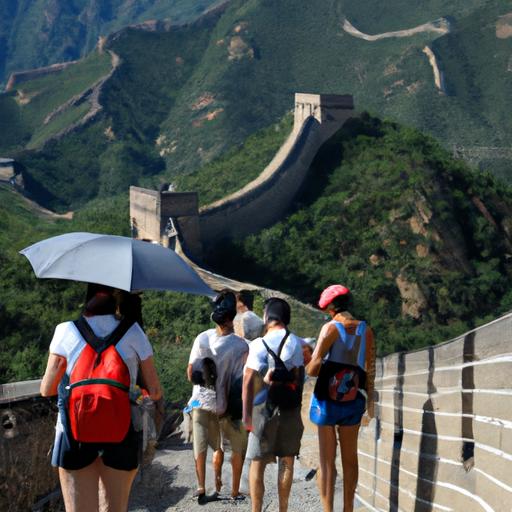Have you ever experienced discomfort during your travels? The excitement of exploring new places can sometimes be dampened by unexpected challenges, including digestive issues. One common concern faced by travelers is constipation. Yes, you read that right! Traveling can indeed impact your digestive system, potentially leading to constipation. In this article, we will delve into the importance of maintaining a healthy digestive system while traveling and shed light on the connection between traveling and constipation.
Introduction
A. Importance of maintaining a healthy digestive system while traveling
When we embark on a journey, whether it’s a short vacation or a long-term adventure, we often prioritize experiencing new cultures, trying exotic cuisines, and creating unforgettable memories. However, we may overlook the significance of nurturing our digestive system during these exciting times. A healthy digestive system plays a vital role in our overall well-being, ensuring proper nutrient absorption, eliminating waste efficiently, and maintaining optimal bodily functions.
B. Common issues faced by travelers, including constipation
As travelers, we are exposed to various factors that can disrupt our digestive rhythm. Irregular meal schedules, dietary changes, dehydration, and stress are just a few examples of how our bodies may react to the unfamiliar environment. Unfortunately, one of the most common issues encountered by travelers is constipation. The discomfort and inconvenience it brings can negatively impact our travel experiences and overall enjoyment.
C. Overview of the article’s aim to explore the connection between traveling and constipation
In this article, we aim to unravel the mystery behind the connection between traveling and constipation. We will examine the factors that contribute to constipation while on the road, provide valuable tips to prevent this issue, and discuss home remedies and over-the-counter solutions for travel-induced constipation. By understanding the root causes and implementing preventive measures, we can ensure a smooth and enjoyable journey without the discomfort of constipation.
So, let’s embark on this enlightening journey together and discover how we can maintain a healthy digestive system while traveling. Say goodbye to constipation and hello to hassle-free adventures! Stay tuned for the upcoming sections where we will delve deeper into the factors contributing to constipation while traveling and learn effective strategies to prevent it.
Understanding the Digestive System and Constipation
A. Brief Explanation of the Digestive Process
Before we delve into the connection between traveling and constipation, let’s take a moment to understand how our digestive system works. The digestive process is a complex and intricate system that breaks down the food we consume into nutrients, which nourish our body and provide energy for daily activities. It involves various organs, such as the mouth, esophagus, stomach, small intestine, large intestine (colon), and rectum.
When we eat, the food is initially chewed and mixed with saliva in our mouth, forming a bolus. This bolus then travels down the esophagus, propelled by muscular contractions called peristalsis, and reaches the stomach. In the stomach, the food is further broken down by stomach acids and enzymes.
Next, the partially digested food enters the small intestine, where the majority of nutrient absorption occurs. The small intestine is lined with tiny finger-like projections called villi, which increase the surface area for nutrient absorption. The nutrients are then absorbed into the bloodstream and transported to various parts of the body to support its functions.
B. Definition and Causes of Constipation
Now that we have a basic understanding of the digestive process, let’s explore what constipation is and its causes. Constipation refers to infrequent bowel movements or difficulty passing stool. It is characterized by hard, dry stools and a feeling of incomplete evacuation. While occasional constipation is common and usually resolves on its own, chronic constipation can be a persistent issue.
Several factors can contribute to constipation. One primary cause is a lack of dietary fiber, which helps add bulk to the stool and promotes regular bowel movements. Insufficient fluid intake, inadequate physical activity, and ignoring the natural urge to have a bowel movement can also lead to constipation. Additionally, certain medications, medical conditions, and lifestyle factors can contribute to this digestive issue.
C. How Constipation Affects Overall Well-being
Constipation not only causes physical discomfort but can also have a negative impact on our overall well-being. When waste materials remain in the colon for an extended period, the body reabsorbs water from the stool, making it harder and more difficult to pass. This can result in bloating, abdominal pain, and a feeling of heaviness.
Moreover, constipation can affect our mood, energy levels, and productivity. The discomfort and frustration caused by constipation can lead to irritability, low energy, and a decreased quality of life. It is crucial to address constipation promptly to maintain optimal well-being, especially when traveling, where we want to make the most of our experiences without the burden of digestive issues.
In the next section, we will explore the factors that contribute to constipation while traveling and provide practical tips to prevent this issue. Stay tuned to discover how you can ensure smooth and worry-free travels by maintaining a healthy digestive system.
Factors Contributing to Constipation While Traveling
Traveling introduces a multitude of changes to our daily routines, including alterations in diet, hydration levels, restroom availability, and even our emotional state. These factors can disrupt the natural flow of our digestive system, leading to constipation. Let’s explore the key contributors to constipation while traveling and understand how they affect our bowel movements.
A. Changes in routine and diet
When we travel, our regular routines often go out the window. We may find ourselves indulging in rich, unfamiliar foods or following irregular meal schedules due to sightseeing and exploration. These sudden changes in diet and routine can confuse our digestive system, making it harder for our bodies to adapt and maintain regular bowel movements.
B. Dehydration and its impact on bowel movements
Proper hydration is crucial for a healthy digestive system. However, during our travels, we may unknowingly neglect our water intake. Long flights, busy itineraries, and unfamiliar surroundings can easily lead to dehydration. Insufficient water intake can cause the stools to harden, making them difficult to pass through the intestines and resulting in constipation.
C. Limited access to proper restroom facilities
While exploring new destinations, we may encounter situations where access to clean and comfortable restroom facilities is limited. This can lead to a subconscious reluctance to use public restrooms or a delay in finding appropriate facilities when the need arises. Holding in bowel movements for extended periods can disrupt the natural flow of our digestive system, leading to constipation.
D. Stress and anxiety as triggers for constipation
Traveling, despite its excitement, can also bring about stress and anxiety. Whether it’s the fear of missing a flight, the pressure to navigate unfamiliar territories, or simply being away from the comfort of home, these emotional factors can impact our digestive system. Stress and anxiety can slow down bowel movements, causing constipation to occur.
Now that we have identified the key factors contributing to constipation while traveling, we can move forward and explore effective strategies to prevent this discomfort. Stay tuned for the upcoming section, where we will discuss valuable tips to maintain a healthy digestive system and ensure smooth bowel movements during your travels.
Home Remedies and Over-the-Counter Solutions for Travel-Induced Constipation
Travel-induced constipation can be an unpleasant experience, but fret not! There are various remedies and over-the-counter solutions available to alleviate this discomfort. In this section, we will explore natural remedies, temporary relief options, and highlight the importance of seeking advice from healthcare professionals before trying any medication.
A. Natural remedies to relieve constipation
Nature has provided us with a treasure trove of remedies to address constipation while on the go. Here are a few natural remedies that can help regulate your bowel movements and ease constipation:
-
Stay Hydrated: Adequate hydration is crucial for maintaining regular bowel movements. Drink plenty of water throughout your journey to keep your digestive system functioning optimally.
-
Increase Fiber Intake: Incorporate fiber-rich foods into your travel diet, such as fruits, vegetables, whole grains, and legumes. These fiber-packed choices can promote healthy digestion and prevent constipation.
-
Prune Juice: Prune juice is renowned for its natural laxative properties. Consider including a glass of prune juice in your daily routine to promote bowel regularity.
B. Over-the-counter medications for temporary relief
In some cases, natural remedies may not provide immediate relief. Over-the-counter medications can offer temporary relief from travel-induced constipation. However, it is important to use them responsibly and as a short-term solution. Some common over-the-counter options include:
-
Stool Softeners: Stool softeners help ease bowel movements by moistening the stool, making it easier to pass. These are typically safe for short-term use but consult the packaging and follow the recommended dosage.
-
Laxatives: Laxatives are a more potent option and can provide quick relief; however, they should be used sparingly as they can cause dependency if overused. Follow the instructions carefully and consult a healthcare professional if you have any concerns.
C. The importance of consulting a healthcare professional before taking any medication
While natural remedies and over-the-counter solutions can be effective, it is crucial to consult a healthcare professional before starting any new medication. They can assess your specific situation, provide personalized advice, and ensure any underlying medical conditions are taken into account. Your health is paramount, and their expertise will guide you towards the most suitable options for relieving travel-induced constipation.
By considering these natural remedies, temporary relief options, and seeking professional guidance, you can effectively manage and overcome constipation while on your travel adventures. Remember, maintaining a healthy digestive system is essential, and with the right strategies, you can enjoy your journey to the fullest without any discomfort.
Conclusion
As we conclude our exploration of the connection between traveling and constipation, it is evident that maintaining a healthy digestive system while on the road is crucial for a smooth and enjoyable journey. We have delved into the factors that contribute to constipation during travel and provided valuable tips to prevent this issue.
By staying hydrated, incorporating fiber-rich foods in your travel diet, maintaining a regular meal schedule, engaging in physical activity, and planning restroom breaks strategically, you can significantly reduce the chances of experiencing constipation while traveling. These simple yet effective strategies can make a world of difference in ensuring a hassle-free and comfortable journey.
Remember, taking care of your digestive health not only enhances your travel experiences but also contributes to your overall well-being. So, the next time you embark on an adventure, make sure to prioritize your digestive system and bid farewell to the discomfort of constipation.
Safe travels and bon voyage!



